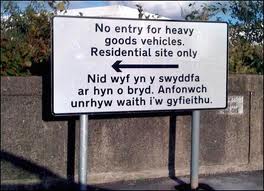According to the European wide project Language Rich Europe, sponsored by language teaching specialists, Rosetta Stone, all European countries have foreign language provision in primary education. Denmark and Greece make two foreign languages compulsory, while 18 countries have one compulsory foreign language. Only in England, Northern Ireland and Scotland, are foreign languages optional.
Also, according to Rosetta Stone, there are more than a million children between five and 18 years old in UK schools who speak some 360 languages between them, and more than 60 of these languages are taught in community language classes.
According to EU policies, all young European children should learn two languages in addition to the national language(s) of the country in which they reside. In primary education, apart from Italy and the Ukraine, all countries offer extra support for newcomers in learning the national language. In secondary education, the only countries to make two foreign languages compulsory at both lower and upper secondary level are Austria, Estonia, France, Poland, Portugal and Romania.
The most commonly offered foreign languages in secondary education are English, German and French. However, other European languages such as Spanish and Italian are also available. Some immigrant languages such as Arabic, Croatian, Polish, Russian and Turkish are often optional foreign languages.
Comment: These findings provide some interesting insights. One is the large number of languages being spoken in Europe – at least some 360 – compared with the common view that English, with Spanish and German, are the key languages of modern business.
Another is the implication that children are, somehow, missing out if they can’t speak at least one language other than their mother tongue – while the traditional British view has been that, if you shout loudly and slowly enough in English, the rest of the world will decide to learn your language (this seems to have worked pretty well up to now, of course). Moreover, with a million children in the UK speaking 360 languages between them, maybe times are changing in terms of the ‘shouting loudly and slowly in English’ strategy – but I doubt it, since it’s worked so well in the past.
Finally, it’s interesting to note that ‘only in England, Northern Ireland and Scotland, are foreign languages optional (in schools)’. Could Rosetta Stone be thinking of the fact that two languages – English and Welsh -are now taught in many Welsh schools? In that case, the only question is which language is the ‘foreign’ one?







This post is priceless. Where can I find out more?
For further details of the study, click on the link – ‘Language Rich Europe’ – in the first sentence.